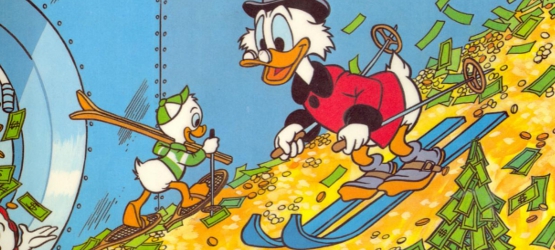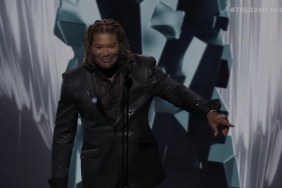On today’s Daily Reaction Dan Oravasaari and Sebastian Moss discuss how some of the biggest companies in the industry handle the release and pricing of DLC. As DLC has been one of the biggest additions to the gaming industry this generation, we discuss how it has simply been used to con you out of your money, rather than to augment your gaming experience.
Nad: Thinking back to when DLC was first really becoming a big deal this generation, it’s hard to believe just how accustomed we have become to the thought of paying for add-ons since Oblivion first released their now infamous horse armor. Since then, the thought of simply paying a dollar for new skins, or random bits of digital content has become one of the biggest methods for companies to extend their profit window.
The question that has been raised today though, is which companies have found the best middle ground between fiscal improvement and improving a product for the end-user? Of all of the company’s that have released DLC this generation, I think EA’s Criterion have actually been one of the best examples of pushing mid-to-late term DLC, while taking an existing product to a new level. In particular, I am talking about Burnout Paradise, which had numerous free DLC packs that inevitably changed the game as a whole, by adding new types of vehicles, maps, and modes from it’s initial launch. This is something that has become the best example of how DLC can actually improve a product, and not just become additional content.
As DLC has become a standard, we have seen companies try to find numerous ways to get consumers to pay after a product has released, with the lowest post-production cost. This has led to developers to include DLC content on the disc to reduce the cost from having content downloaded off servers. Something that has led to numerous online arguments, as the content would have had to have been finished before the product was pressed to a disc. This concept of producing DLC during production is a touchy subject, as it makes sense to create additional content at the time of production, as teams are already emplaced to generate content. Yet, the idea there is some reduction in possible quality to the product, as staff would need to be working on something that is either taken out of the final product, or they are taken off a product to create DLC. In the example of Capcom’s Street Fighter X Tekken, the inclusion of additional characters directly on a disc is absurd, as a fighting game is already a product that relies solely on the variety of its combatants – and charging $20 for the lot is just throwing dirt in an already sizable wound.
Bes: On-disc DLC is shameful. It’s clearly a money-driven and not consumer-focused plan, made worse by the fact that it’s only prevalent in popular games that are guaranteed to make their money anyway. Luckily, after a great deal of internet campaigning, angry fans and general poor publicity, Capcom is finally starting to see the light. Resident Evil 6’s on-disc DLC is set to be free, so it’s only annoying for people without internet.
But on-disc woes are only the tip of the iceberg when it comes to how DLC is generally terrible. One thing that makes me uneasy is season passes – and that’s something that has even been used on stellar titles like Uncharted 3 – where you’re expected to pay $60/£40 for a bunch of DLC you have no details on. It’s a huge monetary commitment that has often led to people’s disappointment when the updates are just old maps with better graphics, and it takes the pressure off of developers to actually bring out something of quality as you’ve already paid for it.
Then there’s the fact that DLC is worked on long in advance of a game’s actual release, or stories of how levels and chapters have been removed near the end of development as the publisher realized they could sell them later on. Capcom will likely not include on-disc DLC any more, but that DLC will instead simply be sold separately… probably on day one, which is another problem.
Day one DLC is a massive slap in the face for consumers, despite BioWare saying we all “want it”. Sure, occasionally content doesn’t make the final version and in the few months it takes for a product to go from gold to stores it might end up being finished, but let’s be realistic here. We all know Sony (especially SCEE) take just as long approving digital titles as they do retail ones, so I’m highly suspicious of any developer that claims they developed and Sony approved a long piece of DLC in time for the main game to come out. Even if, by some miracle, that did happen, it still sends the wrong message to both publishers and consumers. To publishers, it says “is your game unfinished? Don’t worry, just cut a bit out and sell it to them, don’t worry about hiring better developers or delaying a game to make it a full, polished experience. You’ll make more money this way anyway!” And to consumers it says “hey you, you know that game you just bought at full price on day one like a good, loyal fan? Yeah, it’s not the full game, pay up.”
Nad:S o, besides the fact that you’re an idiot, I actually agree. The idea behind season passes is great for the publisher, and could be for the consumer, if they are aware of what content will be coming their way. One of the biggest franchises to capitalize on this revenue source was Call of Duty, as they released their premium membership called ‘Elite’. Something that gave all of their fans access to all of the upcoming DLC for one “low” price of $50, which was almost the price of the full game. Sadly, this is becoming the next trend, as developers are now moving away from on-disc DLC, but are looking for an upfront ‘goodwill’ payment. Yet, the big issue I hold with this new method of production is that this is an even lower form of funding a project than what is available on Kickstarter. As the consumer has little to no information as to what they are paying for, just the premise that they will be saving money now if they buy in early.
As such, the fact that developers are now using DLC as methods to control console priority and exclusives is absurd and infuriating. Call of Duty has been known to be a multiplatform title, yet most people who actually play the game can see just how one sided Activision’s stance is when it comes to the 360. As they are leaving PS3 owners behind by months as DLC maps are obviously already developed, but held behind simply due to exclusive contracts for Activision to get paid. This in itself is blatant double dipping from a publisher, as they will still charge each end-user regardless of what platform they are using for the DLC – even though time in which they receive the content differs substantially.
Bes:T imed DLC is a joke, we are having our gaming experiences tarnished by platform holders who could better spend that money on investing in creating new games – mainly Microsoft, but Sony does dabble in it too with EA and Ubisoft games. But at least most of the timed DLC is known about before so an informed gamer knows what they are getting themselves into.
With Skyrim, the timed-exclusivity on DLC was a surprise that only served to punish people who bought the PS3 version. Our $60 entitles us to less, apparently. Although, by the sounds of it, Microsoft could have saved some money on the Skyrim DLC exclusivity deal – Bethesda can’t handle the PS3 as is, and have ended up delaying the release of Dawnguard and Hearthfire indefinitely, long passed the timed contract.
DLC should be, and could be, great. It should expand (like a bloody expansion pack) on the original game. It should take in community feedback and work on either fixing plot holes, or adding to the story. Multiplayer map packs shouldn’t cost a quarter of a game’s full price when all the balancing, engine development, terrain development and bugs have all already been worked out. Warhawk was great with DLC, it brought new features and new gameplay types for a low cost, with the title ending up being rewarded with a vibrant community that cherished the game dearly.
Unfortunately, Call of Duty’s method makes a lot more money than Warhawk’s, so we’re probably going to see a continuation of the growing trend to squeeze every nickel and dime out of you on content that should have been included originally.
What do you think of DLC this generation? Has it become better or worse as developers have started to move towards season passes? Let us know in the comments below, or by emailing us, also feel free to ignore Seb and Dan on Twitta.








